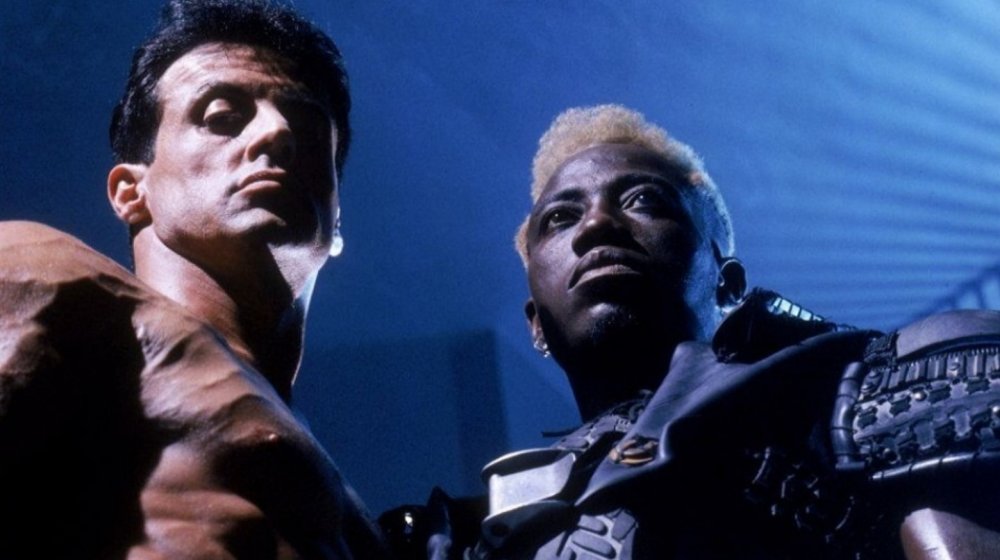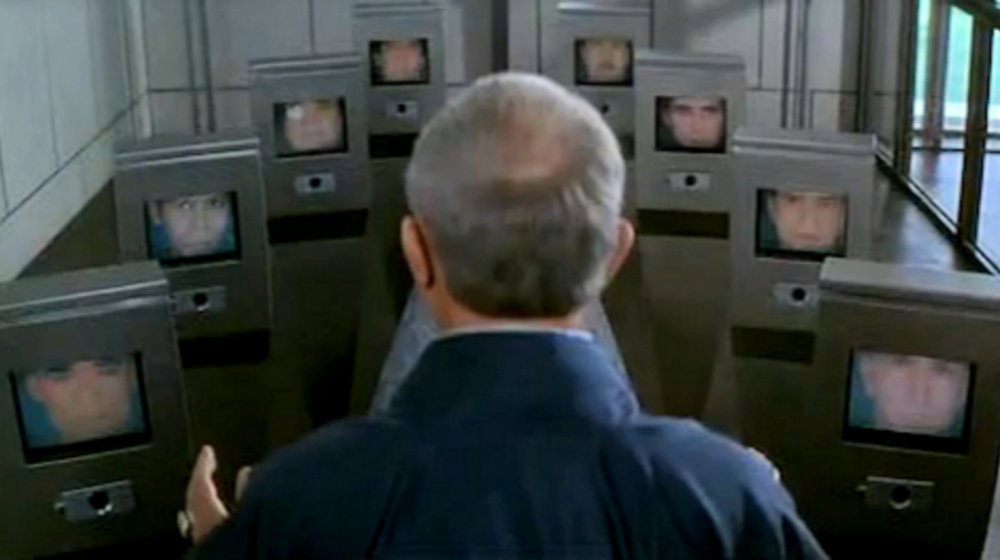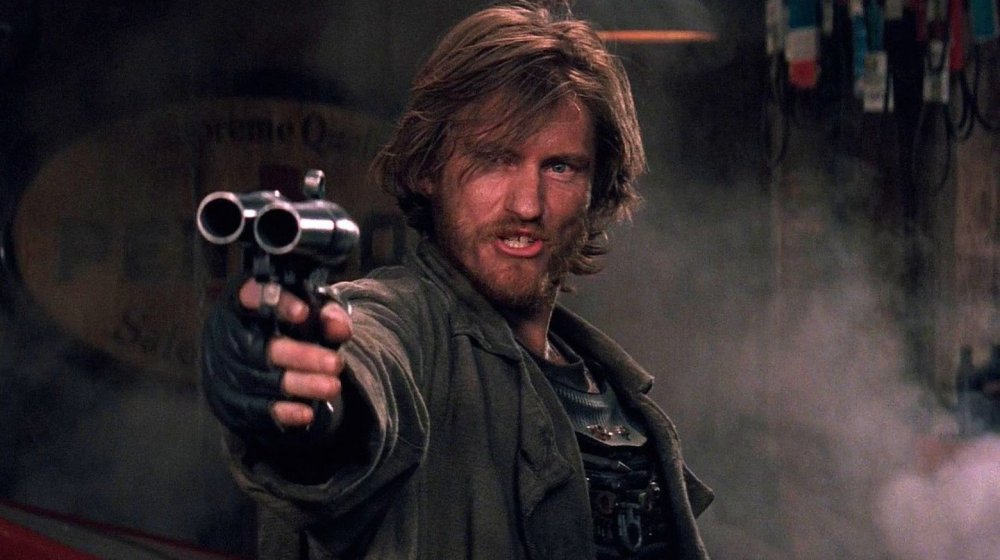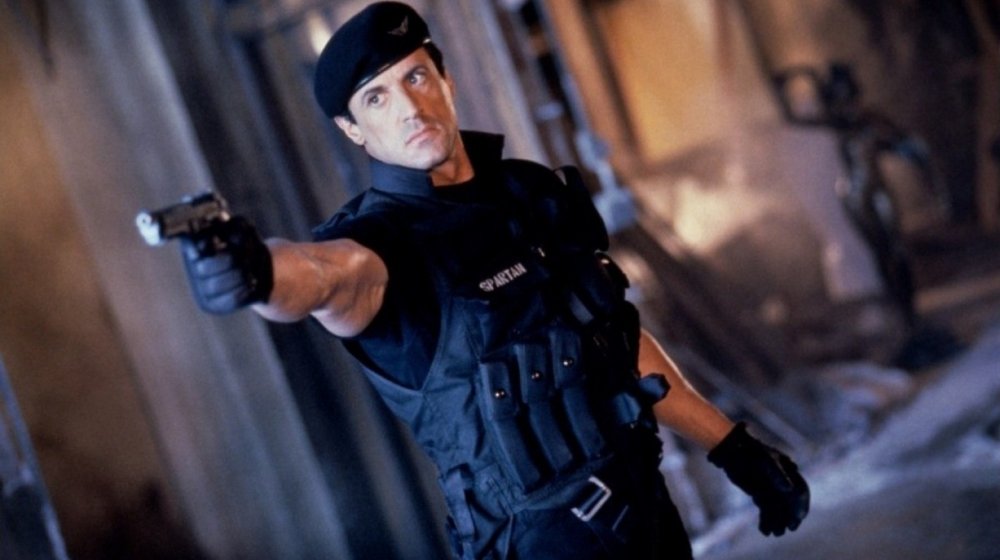The '90s Sci-Fi Action Movie You Have To Watch On Hulu
There are so many streaming services in the world today; sometimes you have to do a little digging to unearth a classic film that hasn't breached the front page of your home screen. Hulu has one such overlooked gem currently streaming: 1993's Demolition Man starring Sylvester Stallone and Wesley Snipes.
Marco Brambilla's directorial debut is an action-packed dystopian sci-fi film that doesn't take itself too seriously. It strikes the perfect balance between legitimate sci-fi and parody. Despite its tongue-in-cheek tone, Demolition Man is actually steeped in serious lore and creative worldbuilding. Stallone plays 20th-century cop John Spartan as a straightforward action hero, a character who presents a stark contrast with Sandra Bullock's naive, borderline comedic Lieutenant Huxley.
Demolition Man may come off as campy by today's standards, but it is a product of its time. It holds up for the most part, offering some of Stallone and Snipes' best work in front of the camera. At the same time, the film packs a surprising amount of thematic depth. Brambilla clearly had something to say about the future which should resonate today.
Demolition Man correctly predicted the future
Interestingly enough, the futuristic world of San Angeles in 2032 predicts a lot of our actual world in 2020. While widespread self-driving cars are still a ways off and Taco Bell isn't yet considered high-end cuisine, Demolition Man gets a lot right about the 21st Century. As far as communication technology goes, tablet computers are commonplace in the world of the film. The police use them to deliver messages between the department. There is also a depiction of remote meetings using video chat software eerily reminiscent of Zoom. Pretty timely, don't you think?
The world of Demolition Man is also rife with high-tech luxury. Virtual reality headsets are widespread, and can even be used to simulate physical contact — a high crime in the film's near-future dystopia. Voice-activated lighting is the norm — at least for those in power. There's even popular radio, although the hits of 2032 are old commercial jingles from decades prior.
Demolition Man makes bold commentary about class and civil liberties
One of the film's main subplots revolves around Edgar Friendly (Denis Leary) — a man labeled a terrorist by Doctor Cocteau (Nigel Hawthorne). He and his gangs of poor, downtrodden San Angeles citizens frequently commit crimes to get ahead and survive. The reality is, they don't do what they do for the sake of civil unrest, but because they just want the world to be the way it was before Cocteau's administration. They want choices and freedom of speech, which Cocteau suppressed in the name of order.
This story has a lot to say about government's role keeping the people safe while also preserving their civil liberties. Cocteau paints Friendly as a menace to his followers. He tries to frame him as a wild-eyed revolutionary who places mayhem over people. Obviously, this effort proves to be pure propaganda. Friendly may break laws, but only because the world has oppressed him and his allies. They just want to eat fried foods and speak however they see fit — illegal activities under Cocteau's regime.
Demolition Man questions the role of law enforcement
While this film is a science-fictional exercise in absurdity on the surface, Demolition Man does manage to approach weighty topics that feel prescient in our current moment. Brambilla is clearly interested in probing the role of law enforcement in society, and the potential for excesses when too much power is concentrated in a militarized force. This questioning is embodied in the character of Stallone's Spartan, who earned the nom de guerre "demolition man" for his destructive methods. He only takes a brute force approach for the sake of helping people in need, however. Spartan isn't without complexity. He understands the responsibility bestowed upon him, and wants to uphold the oath he took in its purest form.
As Spartan explains to Huxley, violence isn't always the answer. Idolizing someone for their ability to resolve conflict in an aggressive, harmful manner isn't right. While he does feel 2032 and its cops have gone soft, he doesn't embrace the notion of force without limits. When people use his nickname to his face, he is visibly repulsed by the implication. Spartan wants to help people in a moral way, without abusing the power that comes with the badge. In his mind, that is how a police officer should behave — even in a future dystopia.



